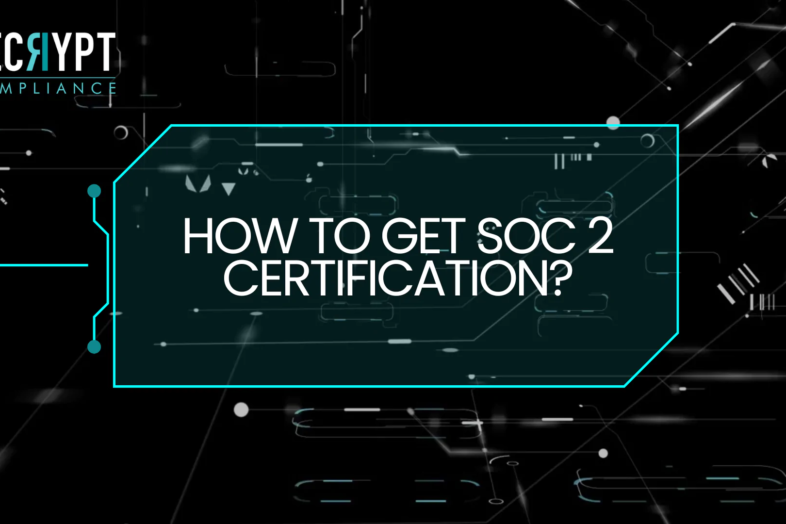
When you’re running a business that handles customer data, you’ve probably heard the phrase “SOC 2” tossed around in meetings, contracts, or even sales calls. At first, it might sound like just another compliance checkbox, but the truth is, getting SOC 2 certified can be a complete game-changer for your company.
In this post, we’ll walk through why SOC 2 matters, how it impacts your growth, and what the process of earning a SOC 2 certificate actually looks like. Grab a coffee—let’s break it down without all the complicated jargon.
What Does SOC 2 Really Mean?
Let’s start with the basics. SOC 2, short for System and Organization Controls 2, is a framework developed by the American Institute of CPAs (AICPA). It’s all about making sure your systems are designed and operated in a way that protects customer data.
Instead of looking at financials, SOC 2 focuses on five trust principles: Security, Availability, Processing Integrity, Confidentiality, and Privacy. Even if you don’t use all five, you’ll definitely need to cover Security. Think of these as the pillars that support customer trust.
Why Clients Care About SOC 2 Certification
Here’s the thing—clients don’t want to take your word for it when you say, “Yes, we’re secure.” They want proof. And that proof comes in the form of a SOC 2 certificate.
For many SaaS and cloud-based companies, SOC 2 isn’t optional. It’s often required to win enterprise clients, renew contracts, or even open conversations with larger partners. Without it, you might lose deals to competitors who already checked that box.
Getting SOC 2 certified is like having a VIP pass—it shows potential customers that you meet a trusted standard, which makes them much more likely to work with you.
SOC 2 Type I vs. Type II
When you start exploring SOC 2, you’ll hear about two types: Type I and Type II. Here’s the quick breakdown:
- Type I: Think of it as a snapshot. It checks whether you have the right controls in place at a specific moment in time.
- Type II: This is the full movie. It tests whether those controls actually work over a period of months.
Most companies begin with Type I and then move to Type II. Type II is generally more valuable in the eyes of clients because it proves you’re not just putting controls on paper—you’re living them day to day.
The Steps to Obtain SOC 2 Certification
Okay, let’s get practical. If you’re wondering how to get SOC 2 certification, here are the key steps to follow:
- Define Your Scope – Which trust principles apply to your business? Every SOC 2 includes Security, but depending on your services, you might need to add others.
- Perform a Readiness Assessment – This is like a practice run where you figure out where your gaps are before an auditor gets involved.
- Close the Gaps – Fix what’s missing. This could mean updating policies, tightening access controls, or improving monitoring tools.
- Choose an Auditor – Only licensed CPA firms can issue a SOC 2 report. Pick one that has experience in your industry.
- Undergo the Audit – The auditor reviews your controls and tests whether they meet the requirements.
- Receive Your Report – Once you pass, you’ll have a SOC 2 certificate and report you can share with clients and prospects.
How Long Does It Take to Get SOC 2 Certified?
This depends on where you’re starting. If you already have strong security policies in place, the process might only take a couple of months for Type I. For Type II, since it requires monitoring over time, you’re usually looking at six to twelve months.
Common Myths About SOC 2
Let’s clear up a few misconceptions:
- Myth 1: Only big companies need SOC 2.
Reality: Even small startups are asked for SOC 2 reports by clients. In fact, being certified early can help you close bigger deals faster. - Myth 2: It’s just an IT project.
Reality: SOC 2 touches HR, operations, and leadership too. It’s about company-wide culture, not just tech. - Myth 3: Once you’re certified, you’re done.
Reality: SOC 2 is ongoing. You’ll need to maintain your controls and repeat audits to stay compliant.
Why Getting SOC 2 Certified is Worth It
Yes, the process takes time and effort. But the benefits are huge:
- Faster Sales Cycles: Clients already trust your controls, so they skip lengthy security questionnaires.
- Stronger Brand Reputation: Your business stands out as one that takes security seriously.
- Access to Bigger Opportunities: Many enterprise-level deals simply aren’t possible without a SOC 2 certificate.
At the end of the day, SOC 2 is about more than compliance—it’s about building lasting trust with the people who depend on your services.
Final Thoughts
If you’ve been putting off SOC 2 because it feels overwhelming, know this: every company that is certified today started where you are right now. By following the steps to obtain SOC 2 certification and getting the right support, you can move from confusion to confidence.
So the next time someone asks, “What is SOC 2?”, you won’t just nod along. You’ll be the one explaining how it works, why it matters, and how getting SOC 2 certified can change the game for your business.




Add Comment